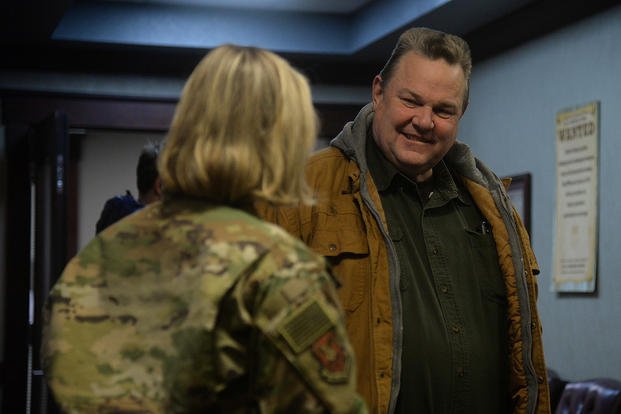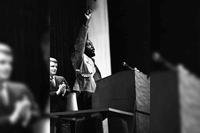Michelle Harada was a trained medic in the U.S. Army and was a nationally recognized emergency medical technician. The lives of soldiers depended on her skills.
But when she returned home to civilian life at Fort Peck, Montana, her skills, training and experience weren't worth much.
She had to retrain and retest to become a certified EMT.
Former U.S. Army Capt. Nathan Wiens of Great Falls had a similar experience.
Wiens attended Montana State University on an ROTC scholarship, graduated with a civil engineering degree and spent nearly five years in the U.S. Army as an engineer officer, including a deployment to Iraq, where his company cleared roads of improvised explosive devices.
After returning home, the Montana Board of Professional Engineers rejected Wiens' application for a license as a certified engineer, because his experience, technically, did not qualify him for civilian certification.
Many veterans are pinning their hopes on legislation intended to help veterans find jobs, including more jobs in the federal government. One bill, the VOW (Veterans Opportunity to Work) to Hire Heroes Act of 2011, would require the federal government to establish a system for certifying certain employment skills gained during active military service.
The bill, which enjoys bipartisan support, is endorsed by Iraq and Afghanistan Veterans of America, the Veterans of Foreign Wars, Disabled American Veterans and the Military Officers Association of America, and is co-sponsored by Sen. Jon Tester (D-Mont.). As of this week, three Republicans, 25 Democrats and one independent have signed on to the legislation.
"We have a responsibility to empower America's veterans with the tools they need to find good-paying jobs after they put their lives on the line for our freedoms," said Tester, a member of the Veterans Affairs Committee. "This legislation eases the transition between military service and the civilian workforce, setting Montana's veterans up for success. They deserve no less."
Of Montana's 103,000 veterans, about 8,240, or 8%, are unemployed, according to the U.S. Congress Joint Economic Committee. In Montana, the rate among post-9/11 veterans is 20.1%, compared to 11.5% nationwide. The unemployment rate among Montana veterans has more than doubled since the U.S. invasion of Afghanistan.
Montana is not unique. On the whole, 30% of veterans ages 18-24 are without jobs, compared with 18% of their civilian counterparts, according to the Bureau of Labor Statistics.
Though the veterans held responsible and significant positions in the military, the soldiers' expertise fails to translate into a job after returning home.
"That's a bunch of crap because we are highly trained and have specialized skills," said Harada, District 1 commander of the American Legion of Montana. "It's stressful enough trying to adapt after coming home without being told you're not qualified for a job. These men and women want to work after being through God knows what."
The VOW to Hire Heroes Act would, for the first time, require broad job skills training for all returning service members. The bill would also allow the federal government to hire veterans leaving the service immediately, so more service members would have jobs waiting for them the day they are discharged.
Tester has also introduced legislation to increase access to employment opportunities for rural veterans. The bill would allow more veterans' job counselors in rural states to be hired to help veterans find work.
The Department of Labor's veterans' job counselors are assigned based on a state's population without any consideration of the size of the state. Montana, the fourth-largest state in the nation, has only six job counselors who each cover 22,600 square miles. Tester's bill would require the Department of Labor to hire more veterans' employment experts for rural states -- one employment expert for every 5,000 square miles. Under Tester's bill, Montana veterans would be able to access 23 full-time veterans' job counselors.
Find the Right Veteran Job
Whether you want to polish your resume, find veteran job fairs in your area or connect with employers looking to hire veterans, Military.com can help. Subscribe to Military.com to have job postings, guides and advice, and more delivered directly to your inbox.











